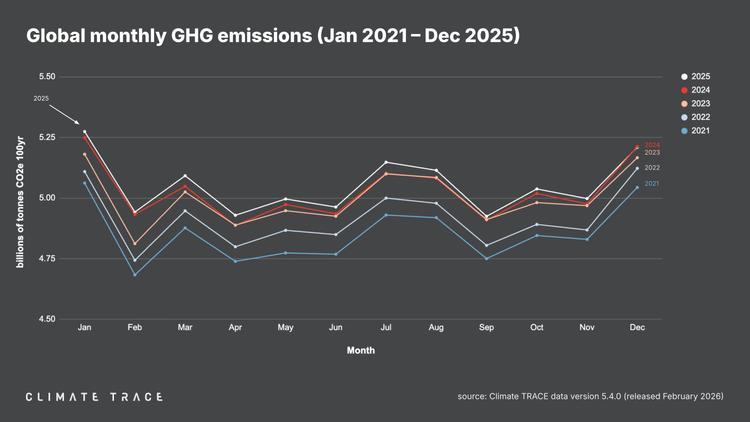Why corporate sustainability strategies need diverse leaders: The missed opportunity in sustainability (ESG) strategy

This is a guest article written by By Lamé Verre, Director, Net Zero, The Crown Estate and Co-Founder & Chair Advisory Board, Lean In Equity & Sustainability
In today’s rapidly evolving business landscape, Environmental, Social, and Governance (ESG) principles are no longer optional, they are essential strategic pillars of Sustainable Business Practices. But while many organisations are making strides in sustainability and ethical governance, the “S” in ESG - Social impact often remains underdeveloped.
At the heart of this social dimension lies a critical imperative: diverse talent.
Twenty years into the Environmental, Social, and Governance (ESG) movement, we are finally asking the tough questions: i). Is this real progress, or just improved reporting? ii). Are our net-zero commitments realistic or are we setting ourselves up for failure? iii). Who and How do we pay for it all?
But a key question remains unexplored: Who is going to do the work?
So, while we debate carbon accounting methodologies, regulatory frameworks, the number of scopes and the alphabet soup, there is a fundamental issue hiding in plain sight. The people building our sustainable future do not look like the communities they are meant to serve.
Projects stall - not because of budget constraints or regulatory hurdles, but because the teams designing solutions do not understand the communities they are trying to help.
The result? Strategies that look great on paper, fall apart in practice.
And that is not just a fairness or just transition issue, but an effectiveness crisis waiting to happen. For corporate sustainability to be truly impactful, it must resonate with the broader society.
Diverse leaders ensure that an organisation's sustainability initiatives are inclusive and representative of the communities they serve and reflecting the broader society. This inclusivity can lead to more comprehensive and effective sustainability strategies that address the needs and concerns of a wider audience.
The reality check nobody wants to face: An overlooked talent crisis
Recent research, conducted by the University of Nottingham and Browne Jacobson, showed that while 78% of large UK organisations consider sustainability a strategic priority, less than 25% have clear pathways for developing Environmental, Social, and Governance (ESG) talent. This discrepancy or say/do gap highlights a significant gulf between recognising the importance of ESG and having the resources and strategies to cultivate the necessary expertise.
Corporate sustainability is a global concern, and companies often operate across multiple countries and cultures. Diverse leaders, with their varied cultural and experiential backgrounds, are better equipped to understand and navigate the complexities of global markets. They can tailor sustainability strategies to the specific needs and expectations of different regions, ensuring that initiatives are relevant and effective across diverse contexts.
Unfortunately, diverse leadership in sustainability remains disproportionately underfunded and overburdened, especially in roles dealing with climate justice, social equity, and governance innovation.
The risks of performance without inclusion
Purpose-driven business needs plural perspectives; not just to avoid risk, but to navigate complex trade-offs across environmental, social, and financial dimensions. When talent remains homogeneous, so too does the lens through which issues are understood and prioritised.
Yet many organisations hiring for roles continue to favour linear career paths, traditional degrees, and prior access to elite networks - criteria that systematically exclude marginalised talent pools.
Worse still, sustainability teams without adequate diversity often carry symbolic responsibility for systemic issues, without the authority or resources to make meaningful change.
This is not just an HR concern but an overall failure of governance that can result in:
- Inaccurate impact assessments, especially around social materiality
- Superficial stakeholder engagement, missing vulnerable communities.
- Tokenistic reporting, particularly in DEI-linked indicators
- Disenfranchisement and misalignment, between board expectations, Executives’ agendas, and internal capacity
A mandate for structural intervention
The responsibility to address this cannot be outsourced to recruitment functions or internal comms. Sustainability professionals, especially those in leadership or policy-influencing roles, must embed inclusion as a strategic lever.
This includes:
- Setting concrete targets for team composition that reflect the regions and stakeholders a strategy seeks to serve.
- Auditing leadership pipelines, not just headcounts, to track who is being mentored, promoted, or retained.
- Tying Sustainability outcomes to inclusive performance incentives, as Lloyds Banking Group did with their 18% reduction in the gender pay gap over two years (Lloyds D&I Impact Report, 2024)
These approaches must also consider the uneven access to ESG education and credentials. As of 2025, over 60% of entry-level green economy roles in the UK still list university degrees as essential, despite increasing reliance on skills-based delivery. If the sector is serious about equity, apprenticeships, vocational training, and funded transition programmes must become core to the ESG workforce pipeline.
The role of policy
Policy is beginning to recognise the issue. The Financial Conduct Authority (FCA) proposed expansion of the UK’s Sustainability Disclosure Requirements (SDR) includes provisions for greater transparency around organisational governance, explicitly calling for reporting on board diversity and decision-making processes.
Similarly, the Equality and Human Rights Commission has signalled interest in mandating ethnicity pay gap disclosures, akin to existing gender pay gap rules, for firms with over fifty employees.
Local councils and public bodies are well-positioned to lead by example here. Through procurement guidelines, contractor expectations, and internal hiring practices, they can normalise diversity benchmarks across sustainability projects. But this influence only matters if supported by clear metrics and accountability loops.
If sustainability is to evolve into a framework that genuinely reshapes how markets and institutions account for people and planet, then those delivering it must reflect the diversity of the systems they seek to change.
The next four years are critical. As climate deadlines near and social fractures widen, talent strategy will determine delivery. This is not simply a question of justice. It is a question of efficacy. And it requires that sustainability professionals stop deferring the work of inclusion, and instead, lead it.
Call to action
Diversity is not just a checkbox, it is a catalyst for innovation, resilience, and long-term value creation. Sustainability leaders are uniquely positioned to drive systemic change, yet many overlook the transformative power of nurturing diverse talent.
Corporate sustainability is about building a better future for everyone, a mission that cannot be achieved without leaders who understand and represent the full spectrum of human experience.
By prioritising diversity across the enterprise, companies not only strengthen their sustainability efforts, they future proof their business.
- Embed Diversity in ESG Goals: Make diversity and inclusion measurable components of sustainability strategy. Set clear targets, track progress, and report outcomes transparently.
- Invest in Inclusive Leadership: Train leaders to recognise bias, foster psychological safety, and champion equity. Inclusive leadership is the foundation of a thriving diverse workforce.
- Create Equitable Pathways: Ensure access to mentorship, sponsorship, and career development for underrepresented groups. Equity in opportunity is key to retention and advancement.
- Listen and Learn: Engage employees in shaping sustainability initiatives. Their insights can reveal blind spots and inspire more impactful programmes.
As businesses continue to navigate the complexities of the modern world, embracing diverse leadership will be key to achieving a sustainable and prosperous future. Organisations must actively pursue diversity in their leadership teams to realise the full potential of their sustainability efforts.
The time is now, sustainability is not just about doing good, it is about doing better. And doing better means building organisations where diverse talent is not only welcomed but empowered. Leaders must recognise that the future of sustainable business depends on the people who drive it. Nurturing diverse talent is not just a moral imperative, but a strategic one. The clock is ticking, and the time to act is now.
Enterprises that fail to invest in inclusive talent pipelines risk stagnation, reputational damage, and missed market opportunities. Their varied perspectives, experiences, and cultural insights drive innovation, enhance stakeholder engagement, and promote ethical decision-making. By reflecting the diversity of the broader society, they ensure that sustainability initiatives are inclusive, relevant, and impactful.
This involves not only recruiting diverse talent but also fostering an inclusive culture that values and leverages different perspectives. By doing so, organisations can build a more sustainable, equitable, and resilient future that works for all.
The path to a sustainable future is not just green, it is inclusive, equitable and powered by diverse voices.








Member discussion